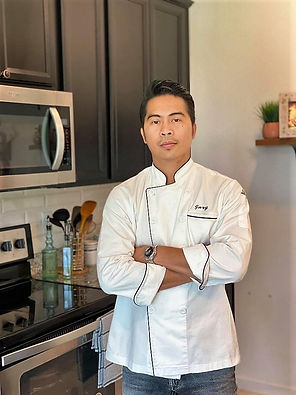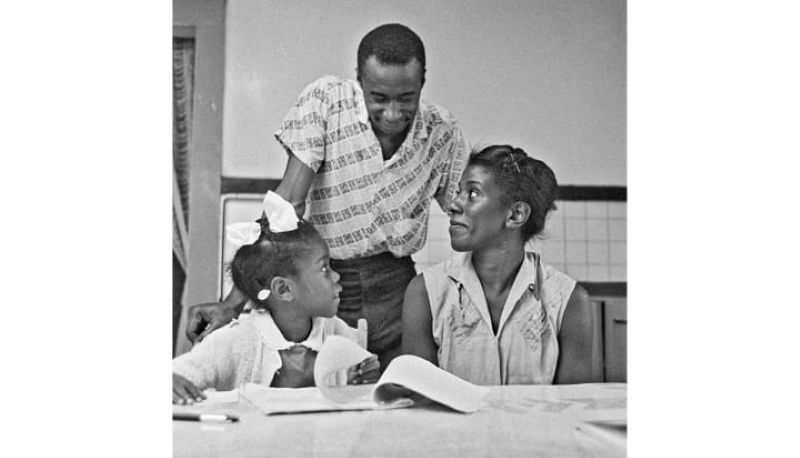When we talk about the Civil Rights Movement, names like Martin Luther King Jr., Rosa Parks, and Ruby Bridges often come to mind. But behind every headline-grabbing figure, there are countless everyday heroes whose sacrifices and decisions shaped history.
Abon Bridges is one of those unsung champions. While his daughter, Ruby, became an icon as the first African American child to integrate an all-white elementary school in the South, her steady presence and resolve provided the essential foundation for this pivotal moment.
Let’s dive into the life, challenges, and enduring impact of him—a man whose story is as inspiring as it is instructive.
Early Life in the Jim Crow South
Abon Bridges was born on January 20, 1931, in Mississippi, during an era when the South was rigidly segregated. The Jim Crow laws of the time created a society where African Americans faced systemic discrimination in every facet of life, from education and employment to voting and housing. Growing up in this environment, learned early on the realities of inequality and prejudice.
Despite the barriers, he was determined to carve out a better life. He developed skills as a mechanic, a trade that not only provided a livelihood but also earned respect within his community.
Mechanics in the 1940s and ‘50s were in high demand, especially in rural areas like Mississippi, and Abon’s reputation for reliability and skill set him apart. He became known as someone who could be counted on, no matter the difficulty of the job—a trait that would define his character throughout his life.
Source: https://vocal.media/
Building a Family: Partnership with Lucille Bridges
In the 1950s, Abon married Lucille Bridges, a partnership built on shared values of hard work, resilience, and hope for a better future. Together, they raised five children, including their youngest, Ruby.
Family life for the Bridges was far from easy. Both parents worked tirelessly—Abon Bridges as a mechanic, Lucille in domestic service—to provide stability for their children.
Education was the cornerstone of the Bridges household. Both he and Lucille believed strongly in the transformative power of learning, especially as a path out of the grinding poverty and limited opportunities that marked African American life in the segregated South. This emphasis on education—and the courage to pursue it despite overwhelming odds—would soon thrust the Bridges family into the national spotlight.
The Pivotal Moment: Ruby Bridges and School Integration
The year 1960 marked a turning point not just for the Bridges family but for the entire country. Following the landmark Brown v. Board of Education Supreme Court ruling in 1954, which declared segregation in public schools unconstitutional, real integration was slow to come. In New Orleans, Ruby Bridges was selected at just six years old to integrate the all-white William Frantz Elementary School.
This decision was not made lightly. Abon Bridges and Lucille agonized over the risks—violent protests, community isolation, and real threats of harm to their daughter.
Yet, after much discussion and prayer, they chose to let Ruby attend. For him, the decision meant more than sending a child to school. It was about standing up for justice, even when the personal cost was high.
Facing Hostility and Hardship
The backlash was immediate and intense. Every day, Ruby faced jeers and threats from angry crowds outside the school. The Bridges family endured ostracism from neighbors and friends.
Abon Bridges himself bore the brunt of the community’s anger—he received threatening phone calls at work and, ultimately, lost his job as a mechanic due to the controversy.
Losing a job in 1960s New Orleans was no small matter. African American unemployment rates were already far higher than those for whites, and jobs that paid a living wage were scarce.
Still, Abon Bridges refused to back down. He stood by his family, his values, and the cause of civil rights, demonstrating a quiet strength that inspired those around him.
Military Service: Courage Beyond the Home Front
His dedication to his country and community extended beyond the civil rights struggle. He served as a soldier in the Korean War—a fact often overlooked in mainstream accounts of his life.
Like many African American veterans, Abon Bridges returned home to a society that offered little gratitude or respect for his service. The contrast between risking his life abroad and confronting racial discrimination at home was stark.
Yet, this experience only deepened his resolve. The discipline, resilience, and sense of justice he honed in the military would serve him well as he faced the challenges of raising a family in a hostile environment.
Life After the Headlines
The years following Ruby’s integration were not without struggle. The Bridges family continued to face adversity, but they also found moments of joy and normalcy.
Abon remained devoted to his family, working as a mechanic and providing what stability he could. Fame did not change him; he continued to be a humble, hardworking, and loving father and husband.
Abon Bridges passed away in 1978, but his legacy endures not just through his famous daughter but through every student who walks through the doors of an integrated school today. His story reminds us that true change is often driven by those who work quietly in the background, making tough decisions and standing by their principles.

Welcome to the world of Chef Gary! Meet Chef Gary, a culinary maestro whose journey from Indonesia to the United States has been nothing short of extraordinary. Immigrating in the early 2000s, Chef Gary began his culinary career as a Sushi Chef at renowned establishments such as Japonais Restaurant in Chicago, followed by stints at Benihana and Ginza in Indiana.
With a passion for perfection and a dedication to his craft, Chef Gary’s career blossomed as he made his mark in the Sunshine State, serving as the Head Sushi Chef at Modern Asian restaurants in Palm Beach. However, his two-year sojourn in New Delhi, India, shaped his culinary prowess, propelling him to the prestigious role of Executive Chef at Nehru Place – Benihana.

